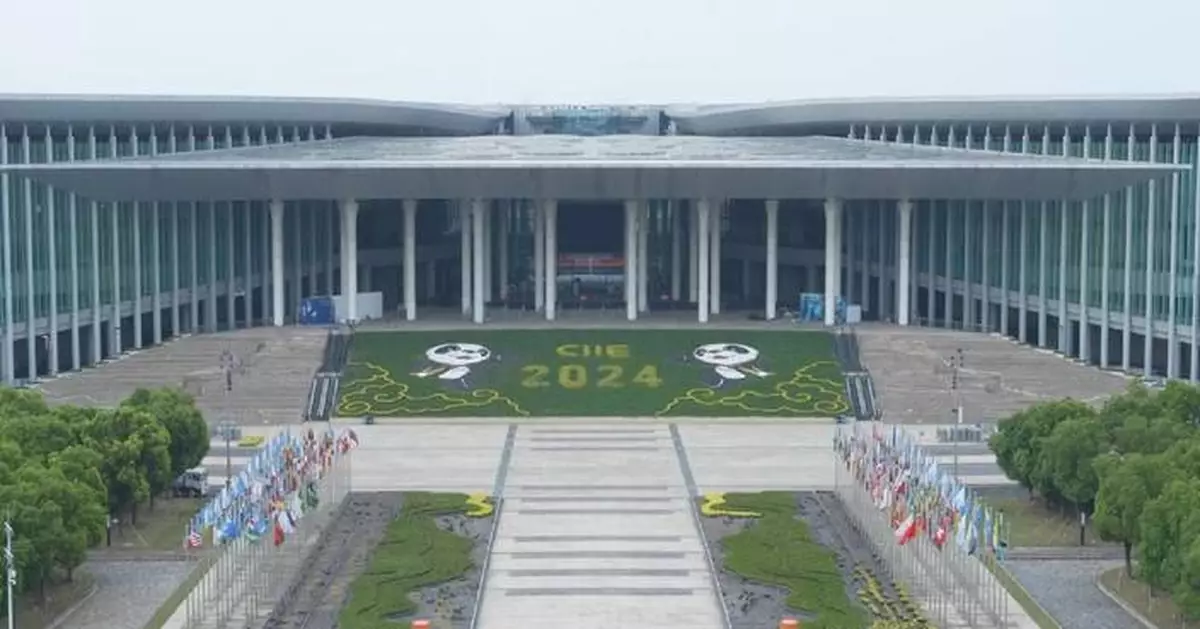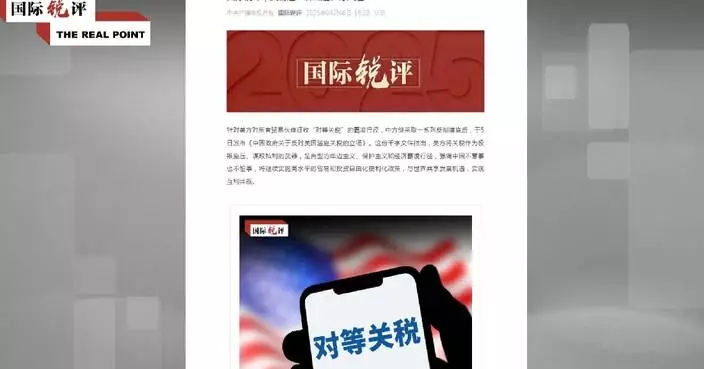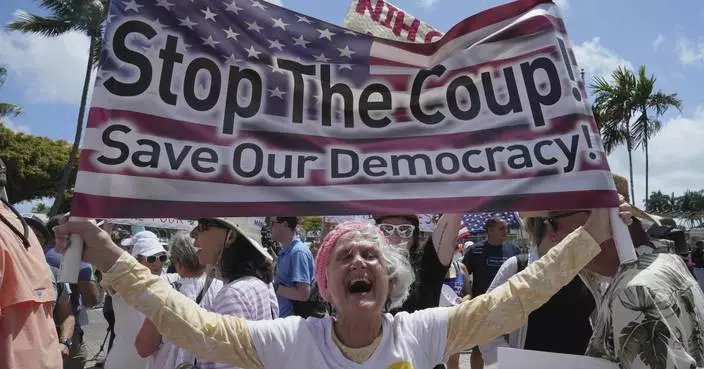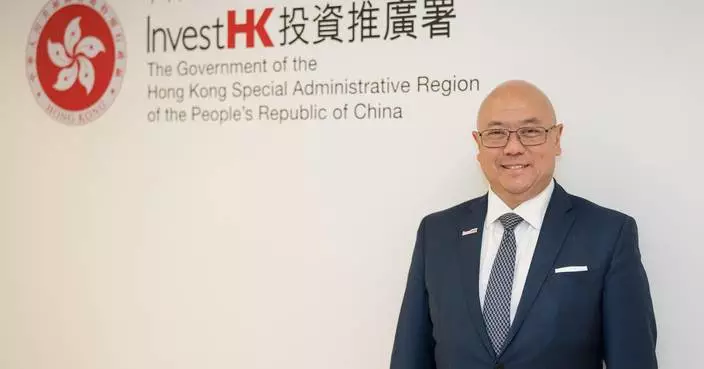Global companies are eying opportunities in China's fast-growing and dynamic consumer market, with more planned investments into the world's second-largest economy, according to senior executives attending the ongoing 7th China International Import Expo (CIIE) in Shanghai.
In an interview with the China Global Television Network (CGTN), Gijs Sanders, head of strategy, marketing and digital transformation of British consumer healthcare group Haleon, praised China's efforts in improving its business environment and pledged increased investment in the country.
"Over the past 30 years, we have seen China continue to make a lot of efforts in building a real world-class business environment, and we have achieved significant results in areas such as improving policies and regulations, opening up market access and also improving government service efficiency. So, all of this obviously helps multinational companies like Haleon operate smoothly in the China market environment and we continue to make more and more investments. For example, we've established a research and development center and an innovation center in China. This investment is clear evidence of our continued interest and the potential we see in the China market," he said.
Speaking with CGTN, Bjoern Sattler, CFO of German drugmaker Boehringer Ingelheim's Greater China division, said the CIIE is enabling products to enter the Chinese market more rapidly.
"For us, it’s embarking together into a new era. We would like to see further opening up. We would like to see that the market provides a platform for us also to bring the latest innovation. (We have) human pharma of more than 25 innovations coming over the next years, and you will also see products like our specialty care drug Spevigo, which made its debut also here in China at the CIIE two years ago. And now we brought it to the Chinese market, almost at the same speed we have brought it to the rest of the world, and with the latest indication, even faster than when we brought it to the U.S. market. So it’s a good platform here," he said.
Nathan Flowerday, chairman of the kiwifruit exporter Zespri, indicated the company's optimistic outlook on the Chinese market.
"It’s such a pleasure for Zespri to be here the 7th time for the CIIE. It’s such an important market and such an important opportunity for Zespri to show its commitment to the China market. We managed to improve our volume by 30 percent and value by 40 percent as well. But also to build partnerships that we have here, the connections that we have with our supply chain optimization and the commitment that we’ve got here, into how do we provide a more efficient supply chain right through to our local Chinese consumers as well. So, we provide a competitive offering for the Chinese consumers and provide more value for them in the future," he said.
The CIIE, which runs from Tuesday to Sunday, has attracted 3,496 exhibitors from 129 countries and regions this year. The event also marks a significant milestone with the participation of 297 Fortune Global 500 companies and leading industry players from around the world.

Global firms eye China's growing market at 7th CIIE
A 25 percent import tariff on all foreign-built vehicles entering the United States has raised serious concerns for manufacturers in South Africa.
Automotive giants like Mercedes and BMW have long used South Africa as a base for global exports -- but those plans may be shifting into reverse gear after the U.S. announced the punitive measures.
"If you take, for example, BMW, 97 percent of the X3 that we are producing in Rosslyn is exported out of the country. We only sell 3 percent in South Africa, and there's a huge number of those vehicles that also go into the U.S. So there are companies in South Africa that are purely here not because they are selling vehicles in South Africa; they are here to produce vehicles for the global market, and it's important for them to remain globally competitive," said Mike Mabasa, CEO of the National Association of Automobile Manufacturers of South Africa.
U.S. automaker Ford, which has deep roots in South Africa, is also in the crosshairs.
The company recently invested over 300 million U.S. dollars to upgrade its Silverton plant in Pretoria, South Africa, for the production of the world's only plug-in hybrid Ranger, which has just entered production but could face delays or restrictions.
"If an American citizen wants to buy specifically a Ford Ranger that is a plug-in hybrid, they can only place an order in South Africa, nowhere else in the world. So, that means, obviously, the capacity of Ford to be able to produce those vehicles in big volumes is going to be constrained, because Americans are going be looking at another Ford that is produced in another country, or even in the United States," said Mabasa.
South Africa has long enjoyed duty-free automotive exports to the U.S. under the African Growth and Opportunity Act, but that relationship now hangs in the balance.
A sharp shift in U.S. foreign policy threatens to derail an industry that employs thousands and contributes around 5 percent to the country's economy.
"We produce less than 1 percent of global automotive vehicles, so to say. So, in reality, the impact on us is likely to be more disproportionate than those of our peers that produce at the same level. And the risk is actually created -- a concentration risk -- in countries that have greater capacity and are building more; in those countries will be able to absorb some of this," said Parks Tau, South Africa's minister of trade and industry.
Amid growing concerns about overreliance on the U.S. market, Amith Singh, national manager for manufacturing at Nedbank Commercial Bank, emphasized the importance of tapping into regional trade opportunities.
"I think we need to make better use of some of our local agreements, our African continental agreements. How do we leverage that? How do we partner with the government and private sector to start benefiting the countries and the economies aside from the United States? So, those could be the catalyst to drive our localization projects; it could be what we need to drive the African economy as opposed to being completely reliant on the States (United States)," he said.
South Africa is for now standing firm in its decision not to retaliate against steep U.S. import tariffs, set to take effect in just a few days.
Officials in Pretoria acknowledge the challenges posed by the current U.S. administration but are pursuing a diplomatic approach in hopes of maintaining stable relations and preserving the African Growth and Opportunity Act.
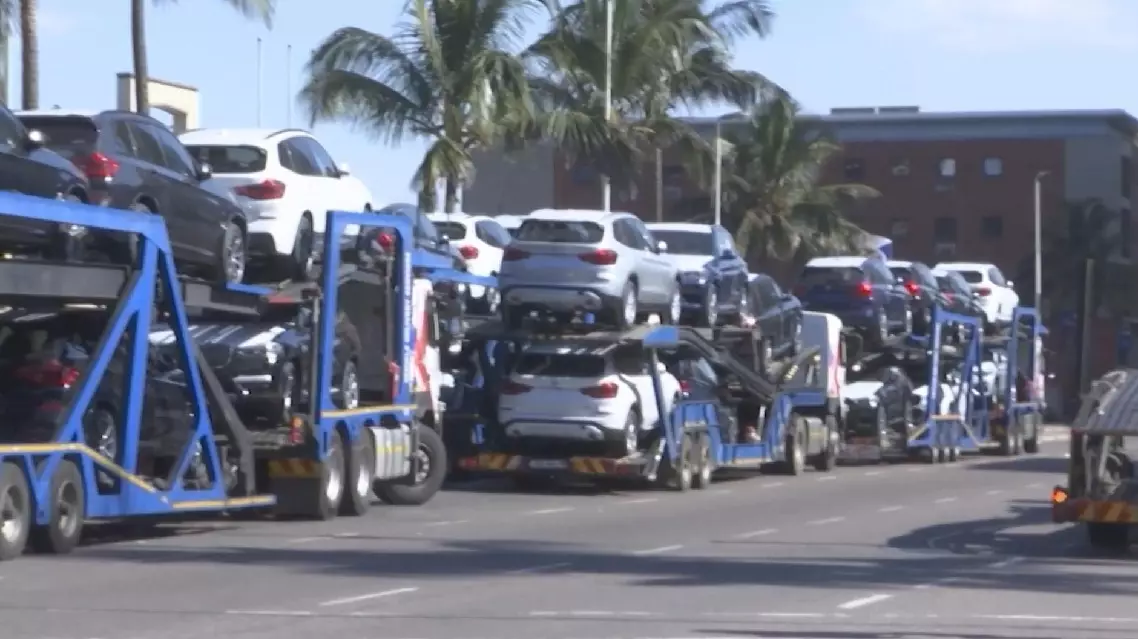
US tariffs rock South Africa’s auto industry



